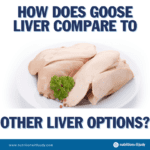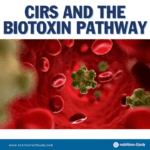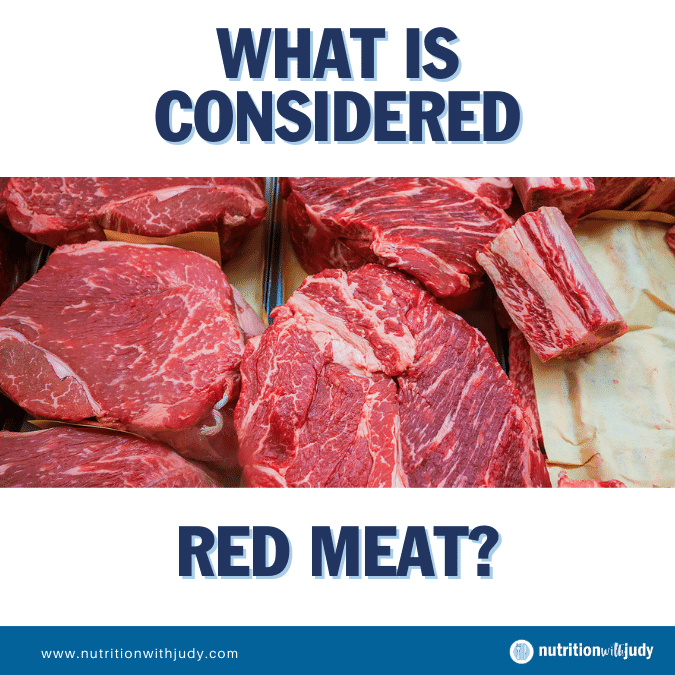

What Is Considered Red Meat?


The topic of red meat has often encountered a whirlwind of controversy, with many myths and misinformation surrounding its consumption. However, it’s time to shine a light on the truth and acknowledge red meat for what it truly is—a nutritional powerhouse that can play a crucial role in a balanced diet, especially within the framework of a carnivore diet.
When pondering “what is considered red meat,” it’s essential to delve into the myriad benefits it offers and how it supports overall wellness. Let’s take a closer look at red meat, its health benefits, and why you should include it in your diet.
What Is Red Meat?
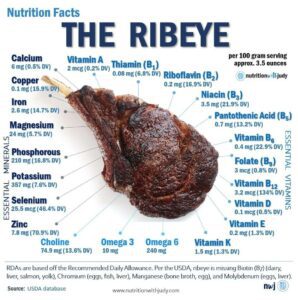

At its core, red meat comes from mammals and is characterized by its darker color before cooking, a feature attributed to the high myoglobin content in the muscle. This category includes a variety of meats such as beef, lamb, venison, pork, goat, and bison. Each type of red meat is unique in taste and also in the nutritional profile it presents, making them indispensable in a diet aimed at achieving optimal health.
Red Meat In Carnivore Diets
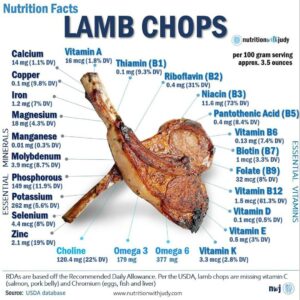

Integrating red meat into your diet, especially within the framework of a carnivore diet, delivers a wide range of important health benefits that should not be overlooked. From its role in muscle building and repair to its contribution to neurological health and iron replenishment, red meat is undeniably a nutrient-dense food choice. Understanding “what is considered red meat” and its nutritional advantages allows for informed decisions about dietary inclusion, ensuring a path towards achieving and maintaining peak physical and mental well-being.
Red meat, often misunderstood and undervalued, is actually a superfood. Recognizing its myriad health benefits and incorporating it mindfully into your diet can pave the way for a healthful eating plan that supports your body’s needs and wellness goals. As we continue to explore and understand the vast nutritional landscape of red meat, it’s clear that its role in a healthy diet is both significant and beneficial.
The Nutritional Benefits of Red Meat
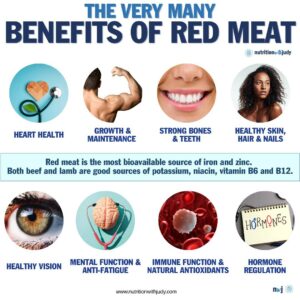

Red meat stands out as a fundamental superfood for achieving optimal health. It offers a range of benefits that are especially valuable for those following a carnivore diet. By exploring what red meat includes and examining its comprehensive nutritional content, one can fully appreciate its crucial contribution to a well-rounded diet.
Essential Nutrients Found in Red Meat
Red meat is in fact, full of valuable nutrients, some of which are challenging to obtain from plant-based sources or other meats. It is rich in vital nutrients such as vitamin B12, which supports neurological function and the formation of red blood cells; creatine, a key player in energy production for muscle and brain health; vitamin D3, crucial for bone health and immune function; and vitamin A, important for vision and immune health. Additionally, red meat is a prime source of carnitine, heme iron, carnosine, DHA, EPA, and taurine, each playing unique roles in bodily functions, from improving metabolism to enhancing mental clarity and physical performance.
Antioxidants in Red Meat: An Overlooked Benefit
Beyond its macro- and micronutrient content, red meat is a significant source of antioxidants, substances that protect cells against oxidative stress and potential damage. These antioxidants, including selenium, vitamins C and E, and manganese, contribute to red meat’s protective effects, supporting cellular health and disease prevention.
Addressing Iron Deficiency
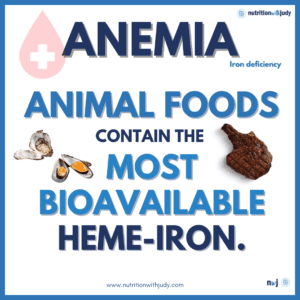

Iron deficiency, the leading nutritional deficiency globally, can be effectively combated through the inclusion of red meat in the diet. Red meat provides heme iron, a form of iron more easily absorbed by the body, making it a crucial component for those at risk of or currently experiencing iron deficiency anemia.
Heme iron, a type of iron found mostly in red meat, is needed for the human body. This easily absorbed form of iron is essential for producing hemoglobin in red blood cells, which is responsible for transporting oxygen from the lungs to the rest of the body. This transport is important for cellular function and maintaining overall energy levels.
The intake of adequate heme iron has several health benefits, including improved energy levels, cognitive function, and a more robust immune system. Red meat is particularly vital for individuals more prone to iron deficiency, such as pregnant women and young children, making it an essential part of their diet.
Vitamin B12: A Critical Nutrient in Red Meat
Vitamin B12 supports the maintenance of the nervous system and is essential for healthy brain function. A deficiency in B12 can lead to neurological issues and cognitive impairment. Vitamin B12 is essential for many physiological functions including the following:
- Red Blood Cell Formation: It aids in producing red blood cells, preventing anemia.
- DNA Synthesis: B12 is involved in synthesizing DNA in all cells.
- Additional Health Benefits: Adequate intake of B12 can improve mood, energy levels, and heart health by helping to reduce homocysteine levels, a risk factor for heart disease.
- Risks of B12 Deficiency: B12 deficiency carries significant risks, including megaloblastic anemia, fatigue, weakness, constipation, loss of appetite, and weight loss. Neurological changes, such as numbness and tingling in the hands and feet, are common. Severe deficiencies can lead to balance issues, depression, confusion, dementia, poor memory, and mouth or tongue soreness.
The Benefits of Creatine
Creatine stands out as a remarkable nutrient found abundantly in red meat, highlighting the unique nutritional benefits of meat consumption. This amino acid plays a crucial role in energy regulation within the brain and muscles, making it a key component of a diet focused on physical performance and mental sharpness. Red meat, particularly beef, is a prime source of creatine, distinguishing it from plant-based foods, which lack this essential nutrient.
Creatine’s primary function is to aid in the recycling of adenosine triphosphate (ATP), the cell’s energy currency. This process is especially critical in tissues with high energy demands, such as the muscles and brain, supporting everything from cognitive functions to physical endurance and overall cellular health. The inclusion of creatine-rich foods, such as red meat, in one’s diet is essential for maintaining these vital body functions at their peak.
The health benefits of creatine extend beyond energy support; they include enhanced muscle strength and endurance, improved brain function, and potential therapeutic effects for various health conditions. Creatine helps the body produce and reuse energy (ATP) quickly, which boosts physical performance and brain function. This makes it an essential nutrient for athletes, bodybuilders, and anyone interested in maintaining good brain health.
A lack of creatine can lead to noticeable declines in muscle mass and strength, and it may also affect brain function. This underscores the importance of incorporating creatine-rich foods, such as red meat, into the diet. For individuals looking to optimize their health and wellness, particularly those following a carnivore diet or those with high physical demands, red meat provides an essential source of creatine that cannot be overlooked.
Exploring the Role of Vitamin D3 in Red Meat
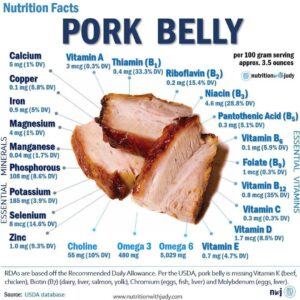

Vitamin D3, a key player in maintaining bone health and supporting immune function, is crucial for the absorption of calcium and phosphorus. These elements are necessary for preserving bone density and strength. Additionally, vitamin D3 aids in regulating cell growth and contributes considerably to neuromuscular health and overall well-being.
While red meat offers a source of vitamin D3, it’s important to note that the quantities found in meat are less compared to direct sunlight exposure and other animal foods such as salmon. However, the presence of vitamin D3 in red meat still marks it as a beneficial component, especially for those following a meat-based dietary approach.
Adequate levels of vitamin D3 are connected with a host of health benefits, including a lowered risk of certain cancers, heart disease, and autoimmune conditions. Moreover, vitamin D3 plays a critical role in mood regulation and has been linked to the prevention of depression.
A deficiency in vitamin D3 can lead to many health issues, such as osteoporosis, weakened immune function, and an increased risk of chronic diseases. Mood disturbances, including depression, can also stem from insufficient vitamin D3 levels, indicating the importance of maintaining adequate amounts for overall health and well-being.
Vitamin A and Red Meat
Vitamin A, a fat-soluble vitamin essential for a multitude of bodily functions, finds its most bioavailable form in animal sources, especially in liver. This type of vitamin A is easily used by the body, unlike the provitamin A found in plants that need to be changed into a usable form called retinol, a process that is not always efficient. Regular consumption of vitamin A from red meat supports vital bodily functions, including a healthy immune system, eye health, reproductive health, and genetic health.
While the benefits of vitamin A are substantial, the consequences of deficiency are serious and can lead to compromised immune function, poor eye health, and reproductive issues. On the other end of the spectrum, vitamin A toxicity, particularly from overconsumption of organ meats such as liver and kidney, poses risks. It’s essential to balance intake to avoid potential health issues associated with both deficiency and excess vitamin A.
Carnitine: The Essential Nutrient in Red Meat for Metabolic Health
Carnitine, an essential nutrient found mostly in red meat, plays a crucial role in the body’s energy production processes. This nutrient is required for transporting and breaking down fatty acids into the mitochondria, the powerhouse of cells, where these fats are converted into energy. This process is especially important during exercise or fasting, highlighting carnitine’s role in sustaining energy levels and supporting metabolic health.
The health advantages of carnitine are broad, including enhanced physical performance, improved metabolic efficiency, and assistance in weight management efforts. Furthermore, carnitine is believed to bolster heart health by improving myocardial function and diminishing the risk of heart disorders.
A deficiency in carnitine can have a significant impact on energy levels and metabolic functions. Symptoms may include muscle weakness, fatigue, and, in severe cases, heart complications. Thus, adding carnitine-rich foods such as red meat in one’s diet is vital for preventing these deficiencies and promoting overall health and wellness.
Carnosine: The Powerhouse Compound in Red Meat
Carnosine, a significant compound found especially in beef, is a key component for the body, with its highest concentrations found in muscle tissue. This compound plays an essential role in the body’s functionality, impacting a variety of bodily functions.
Carnosine’s primary function in the body is as an antioxidant. It safeguards cells from damage caused by reactive oxygen species, offering protection at a cellular level. Moreover, carnosine helps regulate muscle pH by reducing acidity during intense physical activities. This ability is particularly beneficial in enhancing athletic performance, as it aids in reducing muscle fatigue and increasing endurance, facilitating longer and more effective workouts.
The regular intake of carnosine-rich foods, such as beef, brings several health benefits. These include improved muscle function, better physical performance, and a protective shield against age-related degenerative diseases. Carnosine’s potential role in brain health cannot be overlooked, as it may enhance cognitive functions and provide neuroprotective benefits, safeguarding the brain from various degenerative conditions.
Although carnosine is not classified as an essential nutrient—since the body can synthesize it to a certain extent—a deficiency might affect muscle and brain function. This is especially true under conditions of stress or as one ages, making the inclusion of carnosine-rich foods such as red meat beneficial for maintaining optimal muscle and brain health.
Docosahexaenoic Acid (DHA) and Its Presence in Red Meat
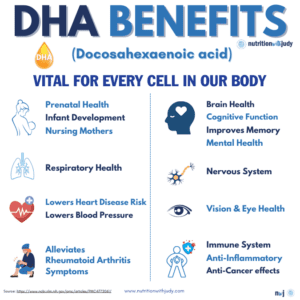

Docosahexaenoic acid (DHA), an omega-3 fatty acid primarily sourced from marine life, plays an important role in brain and visual health. While red meat is not the most abundant source of DHA, grass-fed animal products do offer this essential nutrient, even though it is in smaller quantities. This addition highlights the wider range of nutrients available through various dietary sources, including red meat.
DHA’s contribution to health is wide-ranging. It is vital for the development and maintenance of brain health, supporting cognitive function, and is essential for infant brain development. Additionally, DHA aids in promoting heart health by managing triglyceride levels, blood pressure, and mitigating heart disease risks.
The absence of adequate DHA levels can lead to significant health concerns. For developing fetuses and infants, a lack can adversely affect brain and visual development. Adults facing DHA deficiency may experience cognitive decline and increased heart disease risk. While red meat alone may not fulfill all DHA requirements, its contribution, especially from grass-fed sources, is beneficial in a meat-based diet.
Eicosapentaenoic Acid (EPA) in Red Meat
Eicosapentaenoic acid (EPA) stands out as an omega-3 fatty acid essential for maintaining heart health and reducing inflammation. Although red meat is traditionally not recognized as the richest source of EPA compared to fish, grass-fed animal products offer a notable amount of omega-3 fatty acids, including both EPA and DHA, albeit in different quantities.
The benefits associated with EPA are considerable. It plays a critical role in reducing the risk of heart disease by managing triglyceride levels, lowering blood pressure, and minimizing blood clot risks. EPA is also instrumental in decreasing inflammation throughout the body, which is beneficial for conditions such as arthritis and can also enhance mental health outcomes.
A lack of EPA can lead to heightened risks of heart complications and may aggravate inflammatory conditions. For those who do not tolerate consuming fish, sourcing EPA from red meat, particularly from grass-fed animals, can help in meeting their omega-3 fatty acid requirements, thereby promoting overall health and well-being.
While red meat offers a variety of nutrients, it’s important to acknowledge that it is not the primary source of EPA. For individuals aiming to increase their EPA intake, incorporating a diverse range of omega-3-rich foods or supplements into their diet is recommended. This strategic approach ensures a balanced intake of essential fatty acids, crucial for maintaining heart health and reducing inflammation, thereby highlighting the importance of a well-rounded carnivore diet for optimal nutritional benefits.
Taurine in Red Meat: A Vital Nutrient for Health and Performance
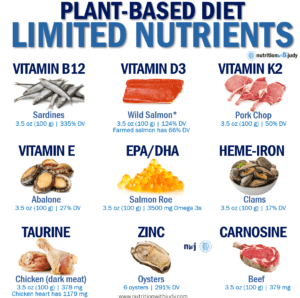

Taurine, an amino acid found naturally in high concentrations in red meat, plays an integral role in various bodily functions. Its presence in muscle tissue is particularly noteworthy due to its multiple health benefits, making red meat a valuable source of this nutrient.
Taurine’s primary role includes acting as an antioxidant, defending cells against damage from reactive oxygen species. Additionally, it helps in regulating water and mineral balance within the blood, contributing to the body’s hydration and electrolyte stability. Its anti-inflammatory and antioxidant properties further protect against cellular damage.
The health advantages of taurine are extensive, especially in enhancing heart health by aiding in blood pressure regulation and preventing heart disease. It supports healthy metabolic functions and is beneficial for eye health. Taurine’s ability to improve exercise performance, by reducing fatigue and safeguarding muscles from cell damage, brings attention to its importance in dietary intake, especially for active individuals.
While the human body is capable of synthesizing taurine, certain conditions, such as specific metabolic disorders, may lead to a deficiency, potentially resulting in developmental issues, weakened heart function, and impaired vision. Incorporating taurine-rich foods such as red meat into the diet can help prevent these deficiencies, supporting overall health and wellness.
Taurine’s role in promoting heart health, aiding metabolic processes, and enhancing physical performance accentuates the value of red meat in a meat-based diet. Its consumption can contribute significantly to maintaining optimal health, making it a nutrient worth considering in dietary choices.
The Multifaceted Benefits of Red Meat
The health benefits of red meat are extensive, offering support for brain function, muscle energy, cell protection, and iron supplementation. Its inclusion in a carnivore diet provides a pathway to optimizing health through diet, underscoring red meat’s value as a nutrient-rich food choice. Understanding and accepting “what is considered red meat” with its multiple benefits can lead to informed dietary choices that support a range of health objectives, from improved mental function to increased physical performance and overall well-being.
Understanding “what is considered red meat” and its nutritional contributions, including vitamin D3, allows for informed dietary decisions that can support a range of health objectives. From improving bone health and immune function to contributing to mental well-being, the benefits of vitamin D3, as found in red meat, are multifaceted and significant.
Incorporating Red Meat into Your Carnivore Diet: A Nutrient-Rich Choice for Optimal Health
Red meat is an important element of the carnivore diet, celebrated for its rich nutritional content. It stands as a superior source of high-quality protein, which is essential for muscle growth and repair. Beyond protein, red meat is laden with essential nutrients such as B vitamins, iron (notably heme iron), and zinc, all of which are instrumental in boosting energy levels, enhancing cognitive function, and fortifying immune health.
Additionally, it is a valuable source of critical fat-soluble vitamins and minerals, often scarce in other food categories. By integrating red meat into a carnivore diet, you ensure a harmonious balance of these nutrients, promoting overall health and vitality, and supporting goals including muscle development, elevated energy, and improved metabolic health.
Closing Thoughts on Red Meat’s Role in the Carnivore Diet
To conclude, red meat is a versatile and flavorful addition to our meals and is essential for maintaining health and wellness. Its inclusion in the carnivore diet is non-negotiable, given the essential nutrients it delivers, supporting many bodily functions. By making red meat a staple in your diet, you guarantee a nutrient equilibrium essential for peak health.
While red meat is suitable for most, exceptions such as Alpha-Gal Syndrome necessitate avoidance. Nevertheless, a carnivore diet remains attainable through alternative meats and animal products that do not include red meat, ensuring those affected can still enjoy the benefits of this nutrient-dense diet.
Work With Our Trusted Carnivore Diet Functional Nutritional Therapy Practitioners
The Nutrition with Judy practice is honored to be a trusted carnivore diet practitioner support serving clients from around the globe. We’re passionate about helping our clients achieve root-cause healing in order to lead the best quality of life possible that’s nearly symptom-free. Our team is dedicated to debunking mistruths and advocating for real superfoods. We welcome you to explore our free resources and are always available to support you through personalized protocols. Our Symptom Burden Assessment (SBA) is the perfect starting point for discovering your root cause and is required to work with our team— you can learn more in-depth about this powerful tool here.
Start your root-cause healing journey today and contact us any time with any questions or concerns.
DISCLAIMER: This content is for educational purposes only. While we are board-certified in holistic nutrition and are nutritional therapy practitioners, we are not providing medical advice. Whenever you start a new diet or protocol, always consult with your trusted practitioner first.




